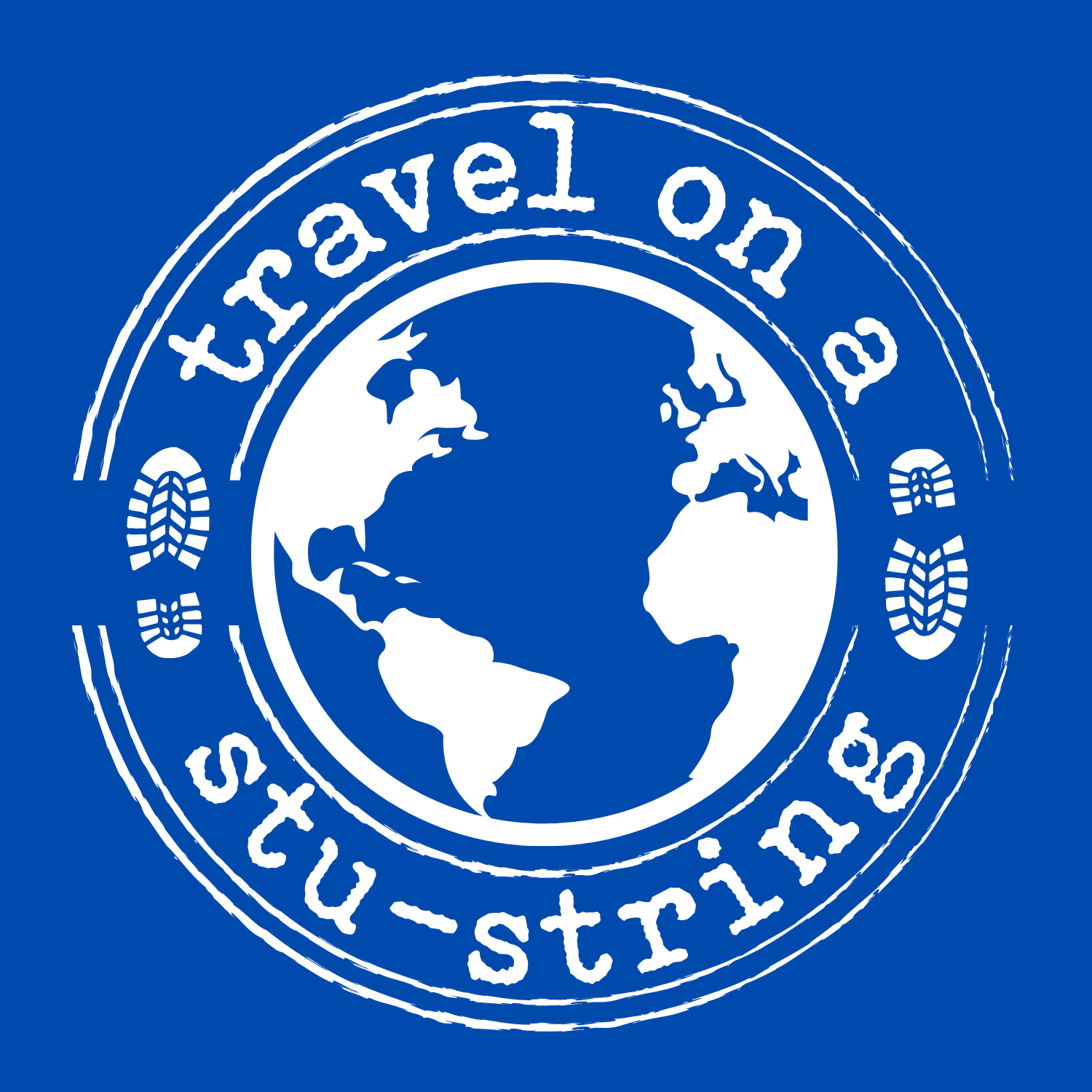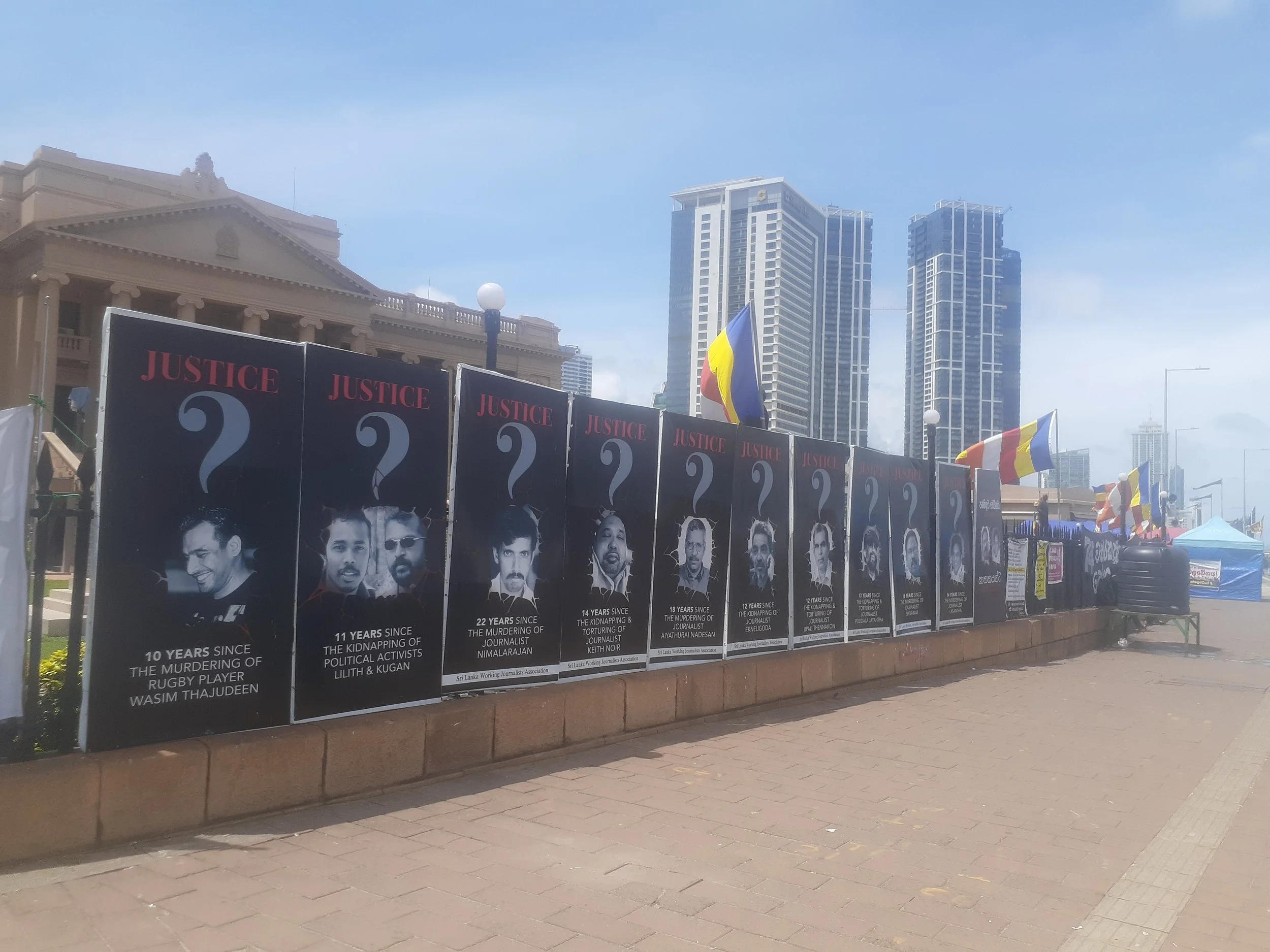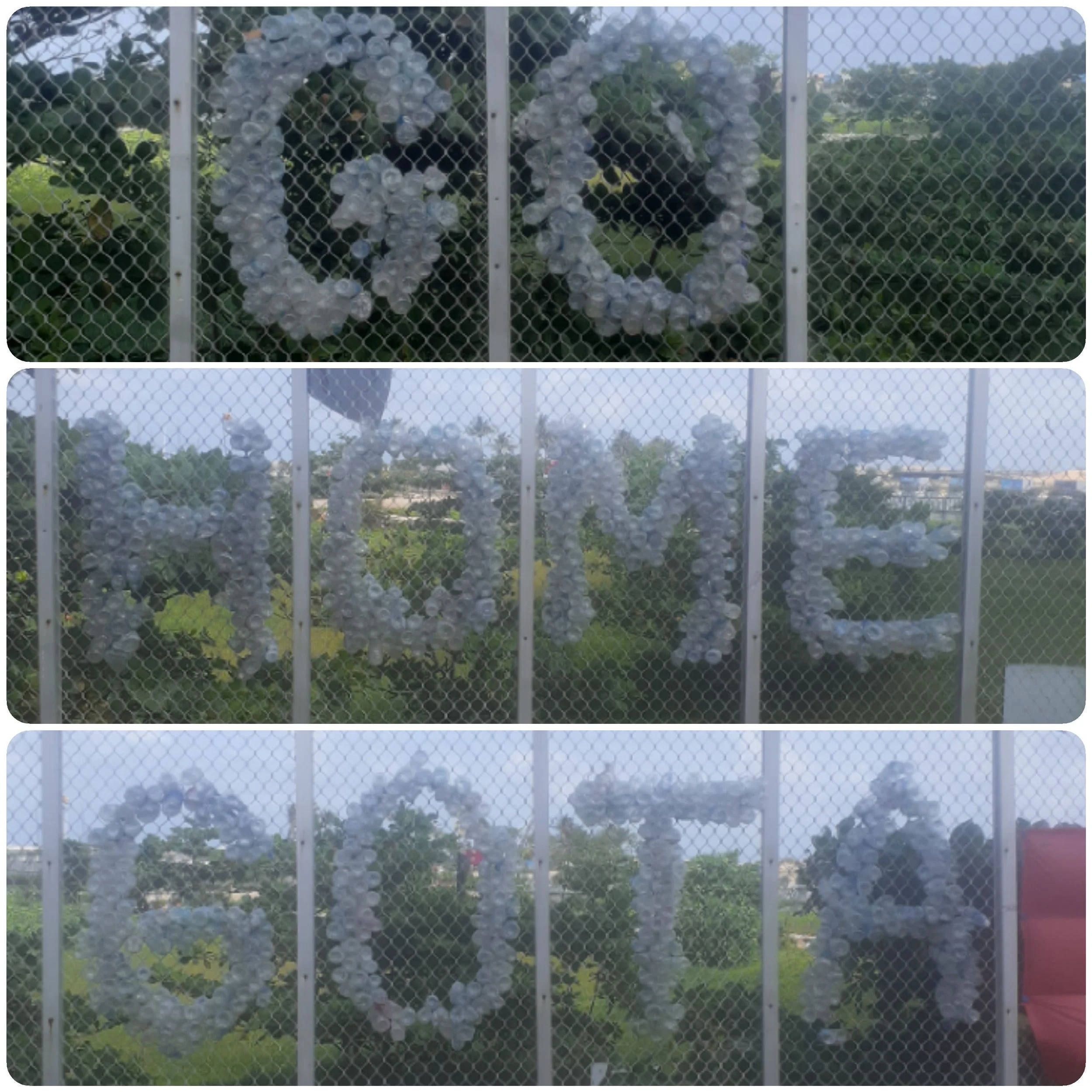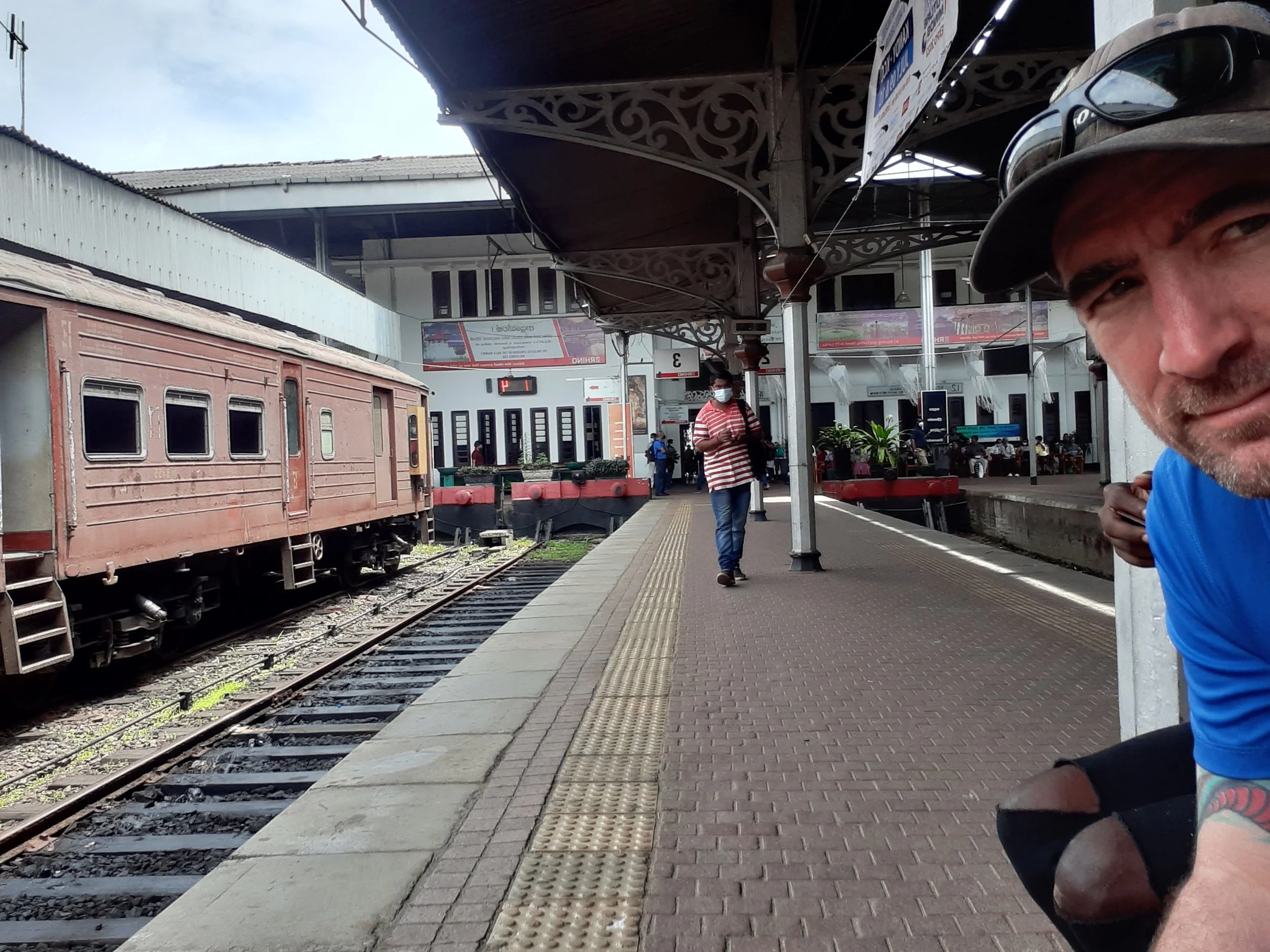About face
‘Eat, eat,’ he says, gesturing towards the plates of chicken and roti, ‘eat.’
I take a drumstick and tear off a piece of roti.
‘Drink?’ he asks, offering me a swig from a shared bottle of Johnnie Walker.
‘No, thanks.’
It is 11:00 o’clock on a Friday night, and the four men I am sitting with are about to spend their third consecutive night sleeping in their tuk-tuks. Under the glow of streetlights, we are eating chicken and roti from foil packages, spread out over a bench seat removed from one of their vehicles. The eldest man, with an air of natural authority, takes another sip of whiskey before speaking.
‘The situation here is very hard,’ he begins, ‘so many days we are waiting, and just for what, a little fuel,’ the other men murmur in agreement, ‘see how many people are waiting? I do, the queue of tuk-tuks stretches for more than a kilometre, ‘everything is now so expensive these days, but we have no money. No money and no work, there is no business. Even rice, we cannot afford to buy rice. This government is so much corrupt, what can we do?
He leaves the question hanging, like everyone else I have met in Sri Lanka. What can they do? The men hope to reach the front of the queue sometime in the morning and will fill their tuk-tuks with as much fuel as they are allowed and can afford. Similarly long queues snake along roads all through the country, tuk-tuks, taxis and buses all occupied for days while waiting to drink from the nation’s dwindling fuel supplies. Until the morning, the men have chicken, roti, about one and a half bottles of Johnnie Walker, and each other.
Sri Lanka is my first international trip post-COVID, and the decision to visit was not an easy one. The country is barely recognisable from the world’s number one travel destination, as it was crowned by Lonely Planet back in 2019. In the three years since, Sri Lanka has descended into political and economic turmoil.
The end of the civil war in 2009 ushered in a period of optimism for Sri Lanka, though what followed was a decade of corruption and economic mismanagement, the results of which began bubbling to the surface in 2018. The following year, an Easter Sunday terrorist attack, which killed more than 250 people, saw a sharp downturn in tourism, and then the COVID lockdowns shut it off completely. A concurrent drop in remittances exacerbated the situation, and when most countries began rebounding from the pandemic, Sri Lanka was spiralling out of control.
The scenes broadcast from Colombo in early 2022 led me to question my travel plans. Will I be a drain on strained resources, do I want to financially support a corrupt government, even indirectly, and what happens if the situation deteriorates? Ultimately, I was comfortable with all these concerns. While many people were struggling to feed themselves, it was not due to a shortage of food, rather, the inflated costs. Any rupees I spent, albeit as a solo traveller, would be beneficial. Financial support of a corrupt government, through visa fees and taxes, was inevitable. Corruption and economic mismanagement are not unique to Sri Lanka, and are rarely a reason not to travel somewhere. Finally, travelling to such a volatile country necessitates some forethought, though with previous experience travelling in conflict zones I felt comfortable and prepared.
On my final day in Sri Lanka, I visit the protest camp in the capital. The camp occupies a part of Colombo known as Galle Face and begins at the edge of the financial district, where riot police and water cannon trucks are poised behind spiked metal barricades. The twin towers of the World Trade Centre were the epicentre of the protests, before the crowds were driven away, and the area fortified. I have the luxury of passing through the barricades, without fear or questioning, and inside the defended area a façade of calm is maintained. An eerie, unnatural silence permeates throughout the block, and I do not linger.
A short distance down the road, black banners emblazoned with Sinhala script and Buddhist flags herald the entrance to the camp. The coastal breeze carries the echoes of protestors speaking from a platform at the gates of the Presidential Secretariat. While I do not understand their language, their indignant tone is familiar and encapsulates the mood. On the fence around the building are placards displaying the faces of murdered or missing journalists and political activists. One word hovers over all their images: ‘JUSTICE?’
Posters of the disappeared at Gotagogama Camp, Colombo
The Gotagogama camp, a series of makeshift tarpaulin tents and wooden shacks, was established following nationwide protests in March. The name translates to Go Home Gota, a reference to the country’s strongman President Gotabaya Rajapaksa. Gotabaya is the second President Rajapaksa, after his elder brother Mahinda ruled from 2005 to 2015. The net worth of the political dynasty is estimated in the tens of millions, and its origins are the source of much consternation. The protestor’s slogan is ubiquitous throughout the site, in both English and Sinhala, adorning flags and posters, and most creatively, spelled out in giant letters from discarded drink bottles inserted into cyclone fencing. It is also being employed as a prominent social media hashtag, promoting the protests to a global audience. The sentiments of the people are undeniable, and the time for negotiation has passed.
Gotagogama camp, Colombo.
Inside the camp’s medical tent, a nurse tells me it is day 42 of the occupation. She has been here since the beginning, and I do not need to ask if she will remain until the end. The team of volunteer nurses has limited supplies. Plastic tubs and first aid kits are stocked with whatever has been donated or sourced, and a small plastic shelf has assorted bottles of liquids and packets of pills. A large bed, draped in a worn mosquito net, is where the team sits, awaiting patients.
‘This situation in our country is so difficult,’ she explains, ‘the government has stolen all the money from the people. We have nothing, but what can we do? People now cannot afford to be here with us. They must work so hard for just a little money to buy rice and other food. We have nothing to help sick people here. It is such a bad situation.’
Go Home Gota: one of the social media messages at Gotagogama
Access to adequate medical care is a concern not only for the team at Gotagogama, but also a worry for the entire country. The government is increasingly unable to afford critical medicines, risking a collapse of the medical system. The nurse tells me that most patients present with minor cuts and abrasions, the result of clashes with police and security forces, while others seek help for heatstroke, headaches, or fatigue. Potable water is plentiful throughout the camp, and a large drum sits outside the clinic, though the team is ill equipped to provide much more than first aid, emotional support, and a shaded refuge.
‘We are happy to have you here in Sri Lanka,’ the nurse continues, ‘please feel safe here. We do not like this government, but we are only fighting them. We want people from your country, and all countries, to visit. It is a difficult life for us, but it is safe for you. We want to show you that Sri Lanka is a nice and safe place to come.’
Approaching three months of existence, Gotagogama is showing no signs of decline. Indeed, construction is continuing. The site is home to a library, with hundreds of donated books and magazines, an art gallery, with ghoulish caricatures of the nation’s leaders, and a classroom for the many resident students. On patches of lawn, women are weaving palm fronds for roofing, and the construction of metal scaffolding indicates a more permanent intent than the ropes holding up most of the tents. The Sri Lankan Red Cross has set up a temporary office, with ambulances on standby, and I visit tents hosting the deaf community, queer community, trade unions, religious groups, and youth movements. All sections of Sri Lankan society are represented at Gotagogama, and the toots of horns from passing traffic indicate widespread appreciation of its ongoing tenure. The welcoming sentiments of the nurse are echoed by everyone I speak to at Gotagogama and have been reflected in my travels through the country. Even in their time of need, outsiders, visitors, travellers, are welcome in Sri Lanka, and I wish I could stay longer.
Heading home, at Kandy train station
Postscript: On 22nd July, the Sri Lankan military, on the orders of new President Ranil Wickremesinghe, led a violent crackdown on the Gotagogama camp. They destroyed tents, arrested key protest leaders, and assaulted and displaced others. One week earlier, Wickremesinghe had assumed the presidency after Gotabaya Rajapaksa fled to the Maldives. In mid-August, after a series of court hearings and appeals, the Gotagogama camp was disbanded, ruled illegal. While the movement was successful in ending the Rajapaksa dynasty, there is little hope that Wickremesinghe’s reign will be any better, and the struggle continues.





